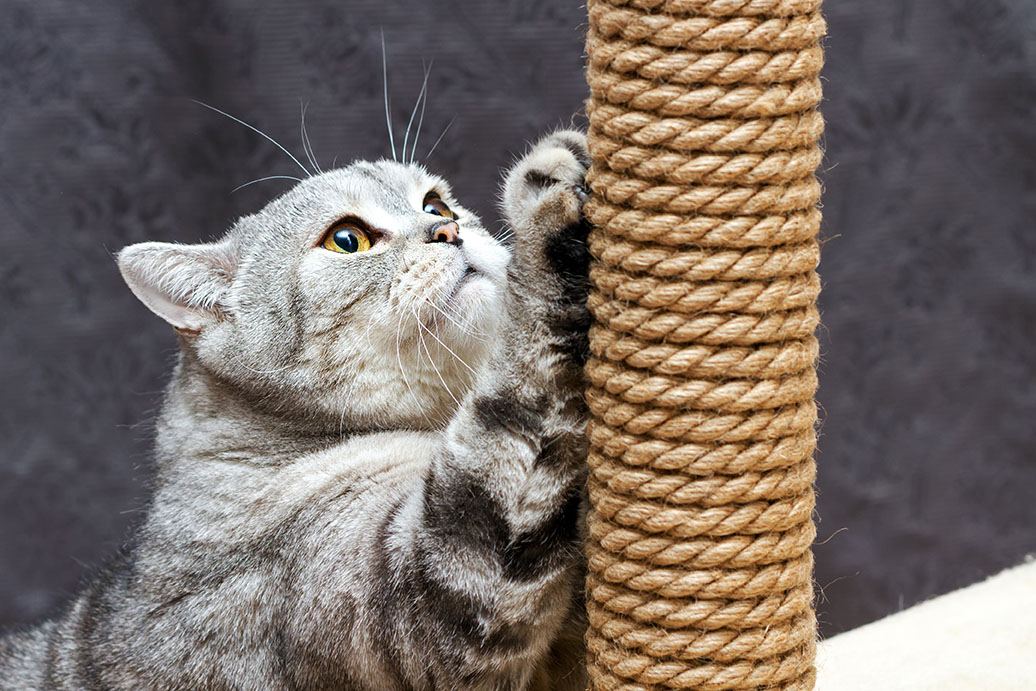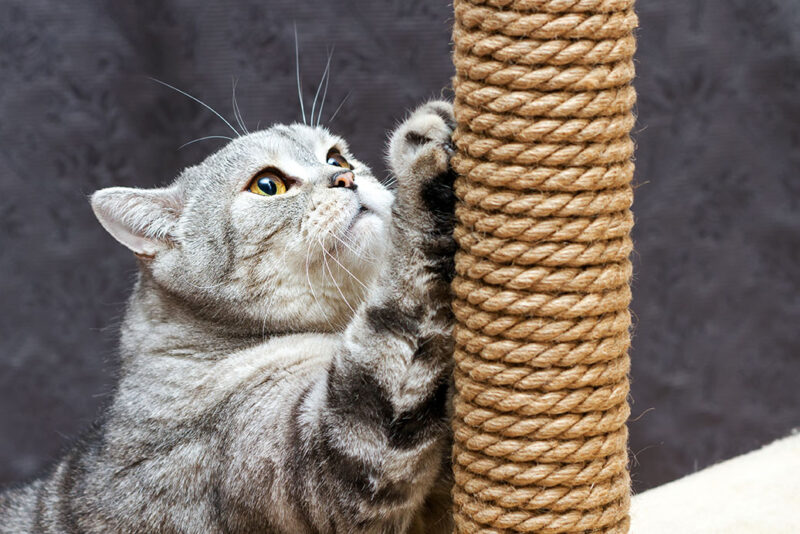Click to Skip Ahead
If you’re a cat owner, you know that they love to scratch and that it’s an essential and instinctive behavior. Rather than try to discourage your cats from scratching, the best solution is to provide plenty of opportunities for your cat to do so. Instead of letting your cats use your furniture, it’s far better to invest in a few scratching posts and enjoy watching your cat have fun while keeping your furniture intact.
If you’re wondering what kind of rope or material is best for scratching posts, we’re here to tell you everything you need to know.

About Cat Scratching Posts
Different cats will appreciate various types of surfaces on their scratching posts. You may find that your cat has a clear preference for one type of material or another. It’s worth trying a few materials to find the one your cat likes the most.
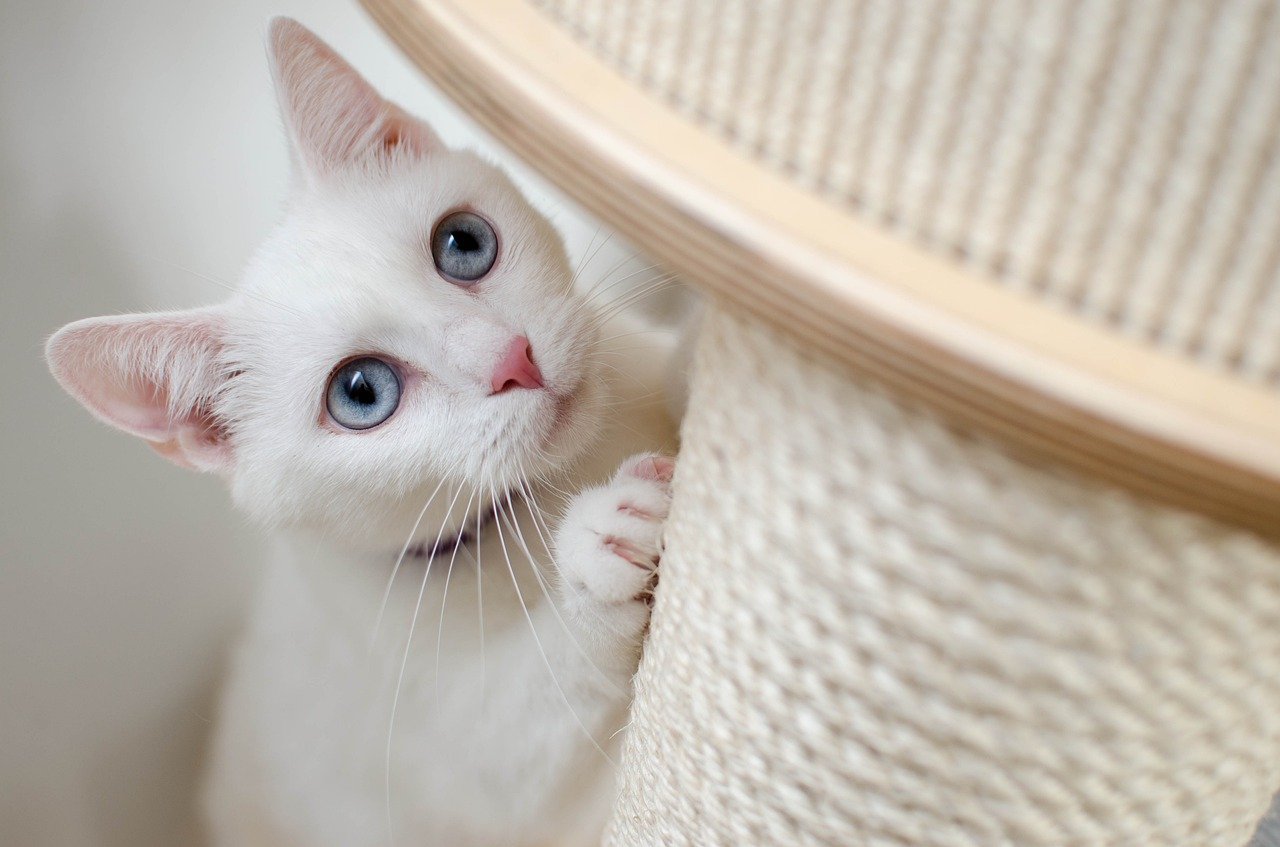
Why Do Cats Scratch?
Scratching is an instinctive behavior for cats, and it’s not something they can stop doing.
- Removing the old outer layer of their claws
- Stretching their muscles
- Relieving anxiety, stress, and frustration
- Marking their territory with scent glands on their paws
In the wild or even for domestic kitties that spend time outdoors, they select trees to meet their scratching needs. Tree bark offers enough resistance for them to get a good stretch while also being tough enough to help remove the outer layers of their claws.
Cats will choose a variety of trees with different textures and angles. This can help them exercise a range of muscle groups, leave their pheromones as a signal to other cats, and get their claws nice and clean!
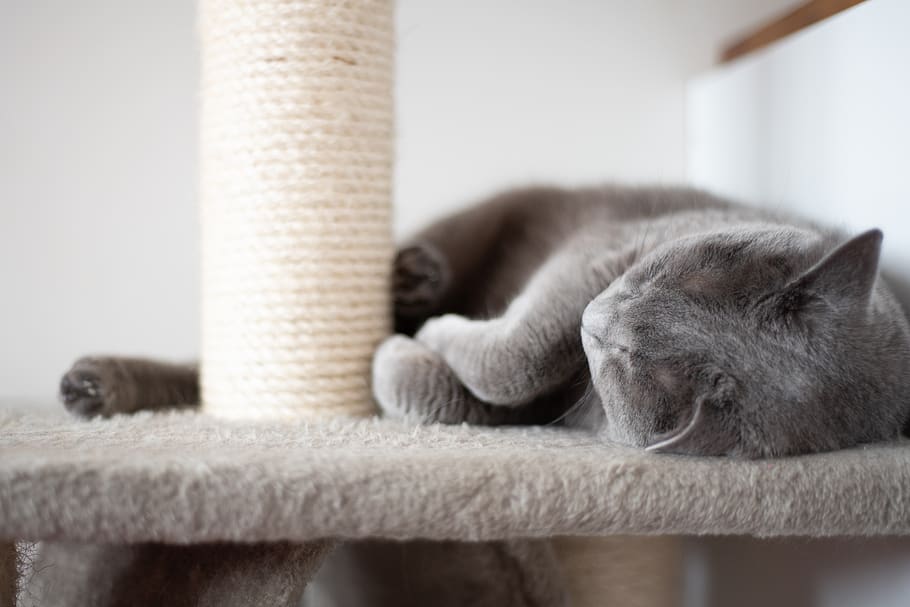
What Do Cats Want in a Scratching Post?
What your cat is looking for in a scratching post may differ from what you’re looking for. You might choose a scratching post based on how it looks and whether it matches your home.
- If they can sink their claws into the material
- If it shreds under their claws
- A post that’s sturdy enough to support their entire weight
- A post they can stretch their full body height against
A post could be made of your cat’s preferred material, but if it falls over when they lean against it, they likely won’t use it again. So, it’s worth making sure the post you choose covers all the previous points, and you should be good to go!
The 5 Types of Material for Cat Scratching Posts
There’s only one type of rope suitable for cat scratching posts, and that’s sisal rope. Before we dive into what makes it such a great material for scratching posts, let’s take a quick look at other materials that are also used and their pros and cons.
1. Corrugated Cardboard
This is a popular choice for scratching posts and is often used for horizontal and sloping surfaces. It’s cheap and available in a wide range of styles, but it doesn’t last as long as some other materials, so it must be replaced more often.
- Inexpensive
- Most cats love them
- Need replacing quickly
- Can leave shredded paper on the floor
- Easy to knock over
2. Carpet
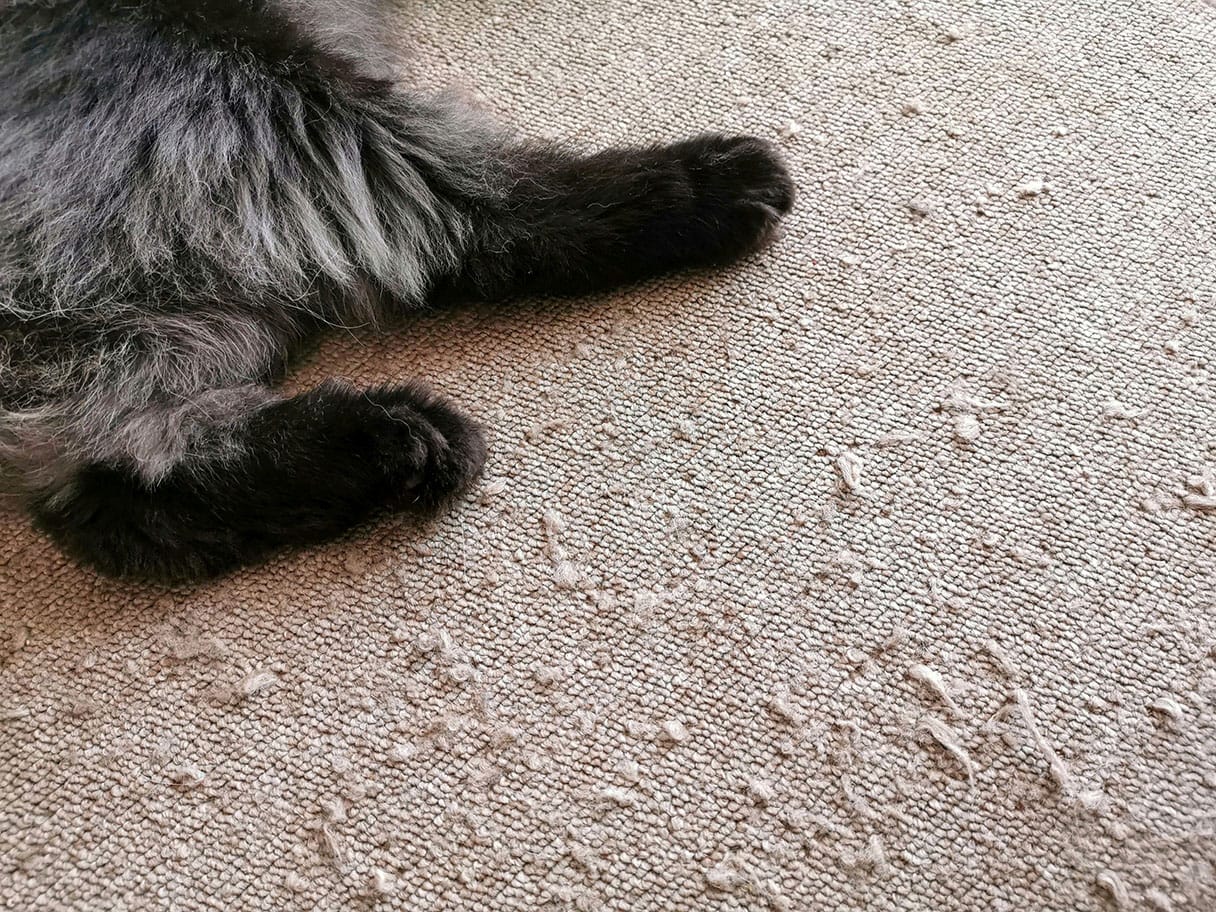
Carpet is a popular choice for scratching posts. If you have a house without any other fabric, it can be a good option, but one major problem is that it can encourage cats to scratch other carpeted areas, too. After all, your cat can’t necessarily tell the difference between the carpet on their scratching post and the brand-new carpet you installed in your bedroom!
- Readily available
- Comes in many colors
- Cheap
- Can catch in cats’ claws
- Can encourage scratching of other carpeted areas
3. Wood
Most cats love the feeling of scratching wood. It’s the material they’ll choose when outside, so it can make an excellent choice for an indoor scratching post, too. Wood isn’t a common material for commercially available cat scratching posts, so you may need to make your DIY version.
- Natural material
- Looks attractive
- Long-lasting
- Shreds nicely
- Untreated wood may have bugs in it
- Not usually available in shops
4. Sisal Fabric
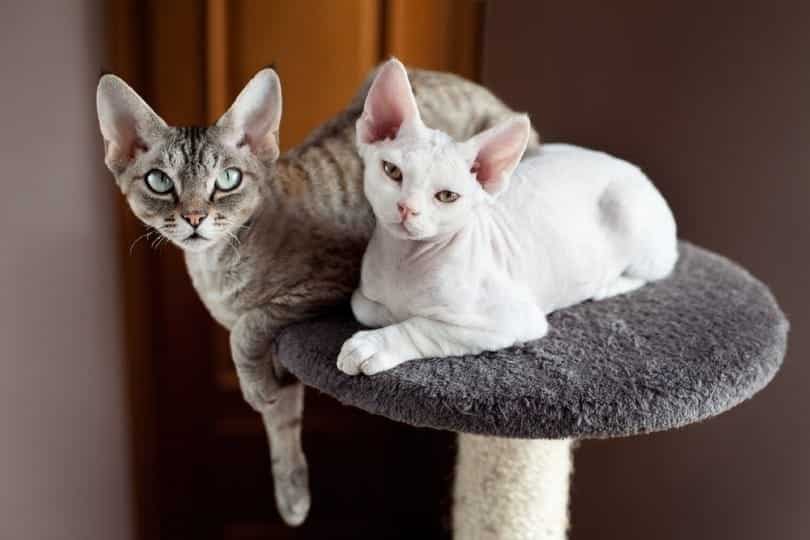
Similar to sisal rope, sisal fabric has been woven into a sheet rather than wrapped around a post or other surface. Some cats prefer sisal fabric because they can pull their claws through the weave rather than getting caught in the lines of rope.
- Appealing texture for cats
- Available in many colors
- Good value for money
- Not as durable as sisal rope
Now that we know more about the different types of material available for cat scratching posts, let’s take a more detailed look at the most popular material: sisal rope.
5. Sisal Rope
This rope comes from the agave plant, which is also sometimes called the American aloe.
- Hardwearing
- Durable
- Cost-effective
- Eco-friendly
- Easy to replace
- Comes in many colors
- Appealing for cats
- Biodegradable
- Needs replaced over time
Conclusion
Due to its durability and appealing texture, sisal rope is one of the best materials for scratching posts. Unlike other materials, you don’t have to replace it as often, and most cats enjoy the feel of sisal rope. However, the alternatives we discussed can also keep your cat’s claws healthy and sharp. You may have to experiment with a few materials before finding one your cat prefers, but purchasing a post with sisal rope is an excellent place to start!
Featured Image Credit: Zzzufa, Shutterstock

